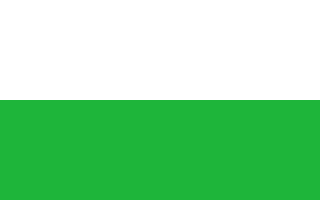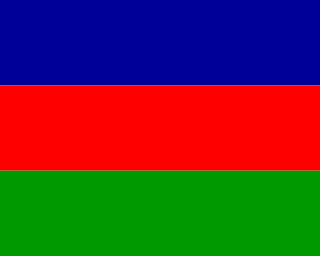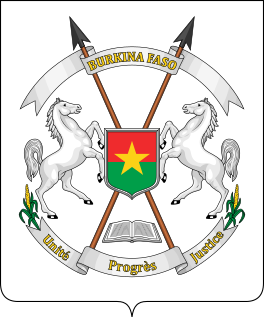
Burundi is one of the few countries in Africa to be a direct territorial continuation of a pre-colonial era African state.

The Front for Democracy in Burundi is a Hutu progressive political party in Burundi.

Jean-Baptiste Bagaza was a Burundian army officer and politician who ruled Burundi as president and de facto military dictator from November 1976 to September 1987.

The Burundian Civil War was a civil war in Burundi lasting from 1993 to 2005. The civil war was the result of long standing ethnic divisions between the Hutu and the Tutsi ethnic groups in Burundi. The conflict began following the first multi-party elections in the country since independence from Belgium in 1962, and is seen as formally ending with the swearing in of Pierre Nkurunziza in August 2005. Children were widely used by both sides in the war. The estimated death toll stands at 300,000.

The National Unity Party is a political party in the Central African Republic.

Presidential elections were held in Burundi on 1 June 1993 following the approval of a new constitution in a referendum the previous year. They were the first multi-party elections for the presidency, the only previous elections in 1984 having been held at a time when the country was a one-party state. This election was a watershed for Burundi, representing the end of a military backed Tutsi state, and the birth of democracy.

The Senate is the upper chamber of Parliament in Burundi. It consists of between 39 and 56 members who serve 5-year terms. The current Senate was elected on 20 July 2020 and consists of 39 members.

The Rally for the People of Burundi is a political party in Burundi. It was headed by Ernest Kabushemeye, until his assassination in 1995, since when Balthazar Bigirimana has been party leader.

The Party for National Rebirth is a Malian political party, created in 1995 by activists from the National Congress for Democratic Initiative (CNID). The Party for National Rebirth is headed by Tiébilé Dramé, who ran for the presidency in 2002, gaining 4% of the votes, coming in fourth place. In February 2007, he was again nominated as the party's presidential candidate for the April 2007 presidential election, receiving third place and 3.04% of the vote.

The People's Party was a small political party in Burundi led by Shadracik Niyonkuru.

The National Council for the Defense of Democracy is a political party in Burundi.

The Movement for the Liberation of the Central African People is a political party in the Central African Republic. It has been an observer member of the Socialist International since 2008, and is also a member of the Progressive Alliance.

The National Convergence "Kwa Na Kwa", popularly known as simply Kwa Na Kwa or KNK, is a political party in the Central African Republic, built around support of François Bozizé. The party was originally an alliance of several political parties, before some merged into a single party in August 2009.

The Patriotic Front for Progress is a political party in the Central African Republic. It is an observer member of the Socialist International.
The Chadian Progressive Party, known as the National Movement for the Cultural and Social Revolution for the last two years of its existence, was the first African political party in Chad. It was a regional branch of the African Democratic Rally (RDA).
PARENA or Parena can refer to

Burundi, officially the Republic of Burundi, is a landlocked country in the Great Rift Valley where the African Great Lakes region and East Africa converge. It is bordered by Rwanda to the north, Tanzania to the east and southeast, and the Democratic Republic of the Congo to the west; Lake Tanganyika lies along its southwestern border. The capital cities are Gitega and Bujumbura.

The Independent Party of Burkina was a political party in Burkina Faso. In 2014 Maxime Kaboré was the chairman of the party.

Parliamentary elections were held in Burundi on 29 June 2015. The vote had been initially set for 5 June 2015, alongside local elections, but it was delayed due to unrest. Indirect elections to the Senate occurred on 24 July.













